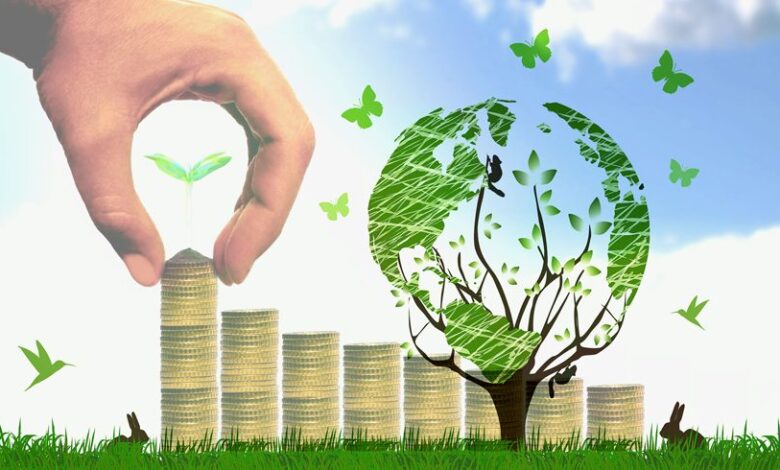Bio-economy to boost India’s growth story

Bio-economy, which involves the use of biotechnology and biomass in economic activities for the production of goods, services, or energy, is a novel and innovative model for industry and the economy. In recent years, the bio-economy has become a key focus of political and technological interest both in India and internationally.
Recently, at the launch of ‘Impact Report 2024’ on National Biopharma Mission (NBM), India’s Minister of State for Science & Technology Jitendra Singh said that bio-economy is going to spearhead India’s future growth story. He recalled the journey of National Biopharma Mission (NBM) since its inception along with Biotechnology Industry Research Assistance Council (BIRAC).
The NBM’s ‘Innovate in India’ (I3) is an industry-academia collaborative mission for accelerating discovery and research for development of bio-pharmaceuticals, while BIRAC has the mandate to enable and nurture an ecosystem for preparing India’s technological and product development capabilities in bio pharmaceuticals, vaccines, biosimilars, medical devices and diagnostics.
The project was sanctioned with a total cost of $250 million, which is 50 percent co-funded by the World Bank. Today, nearly 150 organizations and 300 Micro, Small and Medium Enterprises (MSMEs) are benefitting from the program.
Underscoring the impact of biotechnology, Mr. Singh highlighted that India’s bio-economy has grown 13 fold in the last 10 years from USD10 billion in 2014 to over $130 billion in 2024. Noting that the bio-economy is projected to reach $300 billion by 2030, he added that India, which ranked 81 in 2015, has risen to the 40th spot out of 132 economies in the Global Innovation Index.
He also highlighted some of the contributions of NBM such as India’s first MRI scanner, first DNA vaccine for Covid ZyCoV-D, and the country’s first Injectable Non-Insulin Antihyperglycemic Biosimilar, liraglutide, for type 2 diabetes. The Union Minister added that NBM has established 21 shared infrastructure facilities for research services and biomanufacturing, and these facilities were also leveraged for the Covid vaccine trials during the pandemic and are an important step towards India @2047, saving both cost and time.
He added that the National Biopharma Mission has supported more than 200 grantees in three main domains: Vaccines, Biotherapeutics and Medical Devices and Diagnostics while also strengthening the ecosystem. The Mission has also introduced over 18 successful products to the market, including vaccines, biotherapeutics, medical devices, and diagnostic kits.
The minister said seven technology transfer offices have been established across the nation to support intellectual property management frameworks, training programs and skill development. In addition, more than 450 Intellectual Property rights awareness campaigns were organized and over 25 technologies worth tens of millions of rupees have been licensed to industry.
Referring to the mission as a game changer, Mr. Singh said that NBM has made the India Biopharma sector globally competitive and addressed unmet medical needs in India. “Even the World Bank has recognized NBM as a hidden jewel in its portfolio,” he said.
According to the Union Minister, two things are vital for any Startup to take off: first is early industry linkage and the other is not limiting it to government resources. He also highlighted the Genome India Flagship Program of 10,000 Genome Sequencing, which could support future healthcare strategies across the world — both therapeutically and prophylactically.
According to industry sources, India is among the top 12 destinations for biotechnology worldwide and third largest destination for biotechnology in Asia Pacific. India’s bio-economy has surpassed an estimated $130 billion in 2024 and has recorded a many fold increase in valuation in the past 11 years, with efforts during the COVID-19 pandemic giving the industry a much-needed push.
Today, India is poised as one of the leading destinations for bioinnovation and biomanufacturing, and is identified as a sunrise sector and a key part of India’s vision of reaching a $5 trillion economy by 2024. He noted that there were several successful initiatives that have contributed significantly to India’s bio-economy, including Mission COVID Suraksha, Indian Biological Data Centre, which is the first repository of life sciences data established in the Regional Centre for Biotechnology in Faridabad, and Indian SARS-CoV-2 Genomic Consortium (INSACOG).
“India has made rapid strides in the last eight to nine years. From just 55 (Biotech) startups in 2014, now we have more than 6,000 startups. This puts an end to the thinking that Startup means IT,” he said.
The minister pointed out that India has a huge wealth of bioresources and an advantage in biotechnology. The vast bioresources, especially the vast biodiversity and the unique bioresources in the Himalayas, remain an unsaturated resource waiting to be harnessed. Then there is the 7,500 kms long coastline and under the deep-sea mission, we are going to dig the biodiversity beneath the seas, said Mr. Singh.
Biotechnology has also emerged as a trending career option among the youths.
“In a recent survey of Class 12 students in Delhi, it was found that biotechnology was ranked as the preferred stream whereas earlier it didn’t figure anywhere as a career option,” the minister said, adding that biotechnology will be the key to driving the ‘Amrit Kaal’ (The Era of Elixir) economy, and also in making India a frontline nation in the world.
“Blessed with ample sun, land and agriculture, India has emerged as a powerhouse of bioenergy to facilitate energy transition, and, with the recent launch of Global Biofuel Alliance (GBA) during India’s G-20 presidency, the country has a unique opportunity to become a global leader in bio-economy,” said Jim Lane, the founder of the US-based Biofuel Digest.
According to Mr. Singh, the Honorable Indian Prime Minister Shri Narendra Modi’s vision empowered the Department of Biotechnology and BIRAC to strengthen the Healthcare Ecosystem. He added, “India is recognized as a frontline nation in preventive healthcare and the bio-pharma sector has a pivotal role in it.”













